By understanding the UK’s telephone numbering scheme, you can work out how much a phone call will cost you.
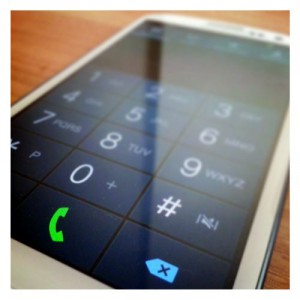 In the UK, it’s normally possible to work out the cost of a phone call and whether it’s included in your allowance simply by looking at the phone number.
In the UK, it’s normally possible to work out the cost of a phone call and whether it’s included in your allowance simply by looking at the phone number.
The most important thing to look at is the telephone number prefix (or the first few digits at the start of the phone number). The telephone number prefix dictates the cost of your call, and whether it’s included within your plan.
Please enter a phone number to find out the cost:
Enter a UK number. For instance, 07123 456 789.
As a rule of thumb, you can use your inclusive minutes to call UK landline and mobile numbers (most phone numbers beginning with 01, 02, 03 and 07). Phone numbers beginning with 084, 087 and 09 are special-rate numbers and will cost you more to call. Phone numbers beginning with 0800 and 0808 will always be free to call.
In this article, we’ll discuss UK phone numbers and how much you can expect it to cost when calling from your UK mobile plan. We’ll also present some money saving tips, and things to watch out for when calling a phone number in each category.
Contents
UK Landline (Most Numbers Starting 01 & 02)
* There are a number of exceptions to this rule. If you’re calling a phone number beginning with 01481 (Guernsey), 01534 (Jersey) or 01624 (Isle of Man), this is classified as a non-UK phone number. You’ll be charged international rates for making this call and you won’t be able to use your inclusive allowance of minutes.
UK National (Numbers Starting 03)
UK Mobile Phones (Most Numbers Starting 07)
One thing that’s worth watching out for:
* Once again, there are a number of exceptions to this rule. Besides the allocation of 070 and 076 to personal numbers and pagers, there are also allocated phone number ranges for the Isle of Man (07524, 07624, 07924), Jersey (07509, 07700, 07797, 07829, 07937) and Guernsey (07781, 07839, 07911). Phone calls to any of these numbers are classed as a non-UK call. You’ll therefore be charged international rates and won’t be able to use your inclusive allowance of minutes.
UK Freephone (Numbers Starting 0800 & 0808)
UK Special Rate (Numbers Starting 084, 087 & 09)
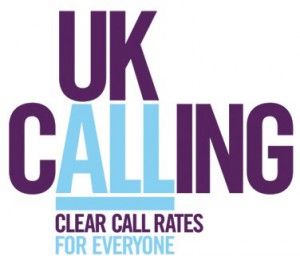
International (Numbers Starting 00)
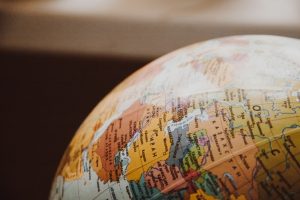 If you dial a phone number beginning with two zeros, you’ll be making an international call outside the UK. You’ll normally dial two zeros followed by an international country code and then the local phone number within that country.
If you dial a phone number beginning with two zeros, you’ll be making an international call outside the UK. You’ll normally dial two zeros followed by an international country code and then the local phone number within that country.
On most mobile phones, the + sign (obtained by long pressing the zero button) can also substitute in place of dialling 00.
The UK’s international dialling code is 44. Phone numbers beginning with 0044 or +44 are therefore actually based in the UK. You’ll pay the same rate whether you dial a phone number beginning with 0044, +44 or 0. In other words, it makes no difference whether you dial 0044 7123 456 789, +44 7123 456 789 or 07123 456 789 (they’re all the same thing).
Other Phone Numbers
There are some other phone numbers not belonging in any of the above categories.
Other phone numbers include:
- 101 –
- 105 –
- 111 –
- 112 –
There are also a number of premium-rate SMS shortcodes, normally five or six digits in length. These are used for voting in TV shows (e.g. X Factor or Britain’s Got Talent), for entering competitions and for making donations to charity. The cost of sending a text message to one of these numbers should normally be advertised, or you can check it on the Phone-paid Services Authority website.
Historical Phone Numbers
In the past, 0500 phone numbers were also in use by several companies. These have been withdrawn, as of June 2017, and will no longer work. You should contact the organisation behind the phone number to ask them for the replacement number.
In London, many outdated shop signs still refer to 0171 and 0181 phone numbers. These phone numbers prefixes have not been in use since April 2000, and should be replaced with the new versions (either 020 7, or 020 8). For instance, 0171 123 4567 should become 020 7123 4567.
More Information
To learn more, see our guide to Pay As You Go rates in the UK. If you’ve just moved to the UK very recently, it may also be of interest to read our guide to using your mobile phone in the UK. There’s also further in-depth information in our beginners guide to telephony in the UK.
A note about your privacy: The phone numbers you enter on this page never leave your computer. The phone number you enter is categorised locally, and as such, is never communicated with our servers.
Many thanks to Ian Galpin for his numerous, invaluable contributions to this article.
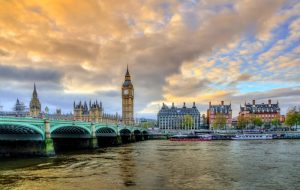 If you’re calling a phone number that begins with 03, you’ll always pay the same rate as when you’re calling a landline phone number. You’ll also be able to use the inclusive minutes you have on your phone plan.
If you’re calling a phone number that begins with 03, you’ll always pay the same rate as when you’re calling a landline phone number. You’ll also be able to use the inclusive minutes you have on your phone plan.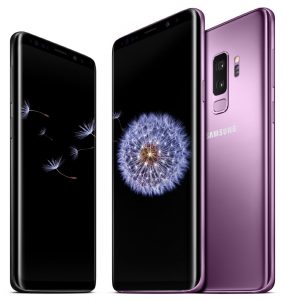 In the UK, most phone numbers beginning with 07 are UK mobile numbers*. For the most part, you’ll pay your standard per-minute rates when calling a 07 phone number. You’ll also be able to use the inclusive minutes on your plan.
In the UK, most phone numbers beginning with 07 are UK mobile numbers*. For the most part, you’ll pay your standard per-minute rates when calling a 07 phone number. You’ll also be able to use the inclusive minutes on your plan.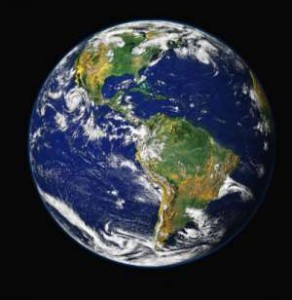
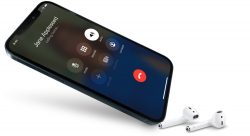
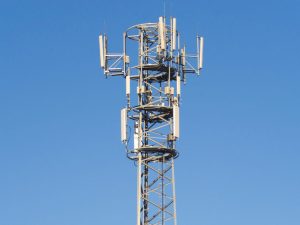

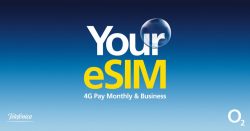
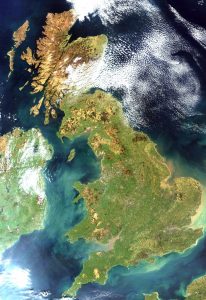
castleghost said:
Are there any costs (per call or minute) when I call a 0800 toll-free UK number from my Jersey mobile phone? Does the provider play a role?
Cheers.
Ken replied:
Hi there,
Great question! Unfortunately, I’m not that familiar with how charges work on a Jersey-based SIM card so it’s worth double checking directly with the mobile network.
Ken
Ian said:
The article says …”There are also a number of premium-rate SMS shortcodes, normally five or six digits in length. These are used for voting in TV shows (e.g. X Factor or Britain’s Got Talent), for entering competitions and for making donations to charity. …”
SMS shortcodes are used for a mixture of various free and premium rate services. Premium rate services include donations, competitions, chat services and various subscription services.
Sending a text to a shortcode may be “free-to-sender” or may cost “one standard rate (non-inclusive) message to a shortcode”. Which one it is, is set by the service provider when they set up the service. Where there is a charge, the charge is set by the sender’s mobile provider.
Receiving a message from a shortcode may be free or may incur a premium rate charge. This charge is set by the service provider. Some services send one message, others send multiple messages over time as a subscription service. Premium services can cost up to £30 per message.
Voting on a TV show is usually done by CALLING a voice shortcode, not by sending a text. Other voice services also use voice shortcodes. Charges can be up to £2 per call and/or £2 per minute.
Ian said:
While calls to 101 are generally 15p per call, note that these calls are free from a BT callbox payphone, giffgaff mobile, or vodafone pay-as-you-go mobile.
Additional funding from the Home Office will mean that calls to 101 will be free-to-caller from all landline and mobile providers from 1 April 2020.
Ian replied:
Virgin Media (on all landline tariffs) and Virgin Mobile (on all tariffs) now offer free calls to 101.
All providers must offer free calls to 101 from 1 April 2020.
Ian replied:
Since 1 April 2020, calls to the police “single non-emergency number” (snen) on 101 are now free.
This applies when calling from landlines and from mobiles and it applies in England, Wales, Scotland and Northern Ireland.
Ken replied:
Hi Ian,
Thanks a lot for the heads up about this! I’ve amended the article above to reflect this updated charge.
Hope you’re keeping OK given all of the recent events.
Ken
Ian said:
Retail pricing for calls to 070 numbers will change from 1 October 2019. This follows from the Ofcom consultation in 2018. Ofcom is setting a cap on termination rates for calls to 070 numbers to be at the same level as for calls to mobile numbers. This is currently 0.48p (£0.0048) per minute. Ofcom expects calls to 070 numbers to become inclusive in allowances on the same basis as calls to mobile numbers or otherwise charged at the same rate as a call to a mobile number.
Ken replied:
Hi Ian,
Great news! Thanks for keeping us informed!
Ken
Ian replied:
A number of providers have now altered their rates for calls to 070 numbers to be the same as (or less than) calling a UK mobile number and/or started including these calls in allowances, and several others will do so in the coming weeks.
Ordinary calls, inclusive in allowances, otherwise charged at a “standard rate”:
– UK geographic numbers starting 01 and 02,
– non-geographic numbers starting 03,
– personal numbers starting 070 (some providers yet to fall in line)
– UK mobile numbers starting 071 to 075 and 077 to 079.
Free calls:
– non-geographic numbers starting 080,
– numbers such as 105, 111, 112/999 and 116xxx.
Chargeable calls:
– landline and mobile numbers allocated in CI and IoM,
– Corporate numbers starting 055,
– VoIP numbers starting 056,
– Pager numbers starting 076,
– non-geographic numbers starting 084, 087, 090, 091, 098,
– DQ numbers starting 118.
Further simplification with the 055, 056, 076, 084 and 087 ranges may happen in the coming years.
Ian replied:
101 is now also a free call.
Ian said:
From 1 April 2019 Ofcom has imposed a cap on the Service Charge element of a call to a DQ 118 number of £3.65 per 90 seconds of the call.
As a result of this, twenty-six of the existing one hundred Service Charge price points were withdrawn from use by DQ 118 services on 1 April 2019. Fifteen of those price points are still available for use by premium rate services operating on 09 numbers and eleven were completely withdrawn from use.
Of those eleven withdrawn SC price point codes, since 1 May 2019, seven have had their SC price point code redefined with new pricing within the Ofcom cap for 118 numbers, (SC068, 069, 070, 071, 072, 087, 088) and four SC price point codes remain withdrawn and undefined, available for future use (SC080, 089, 090, 091).
Ian said:
Please note that 105 and 111 are not available in Northern Ireland.
101 does not work in the Channel Islands or Isle of Man. The status of 105 and 111 is less clear, but they also probably do not work there.
Additionally, 111 does not yet cover all of Wales. Some areas of Wales still have to call 0845 46 47 which can cost up to 60p per minute (comprising the Access Charge plus the 2p per minute Service Charge).
Ken replied:
Hi Ian,
Thanks again for your comments, and for letting me know about this! I’ve amended the article above to make it clearer that 105 and 111 are not available in Northern Ireland.
Thanks again for taking the time to reach out!
Ken
Robert Johnston said:
Hi
I’ve just made a 50 minute call to an 0800 number (vistaprint) -I am in Spain on holiday and needed to place an urgent order.
I’m on a contract with O2 …… is the call free ?
Ken replied:
Hi Robert,
When travelling inside the EU, you should pay just your normal UK rates. Therefore, it should still be free to call an 0800 phone number when roaming in a European country.
Hope this helps,
Ken
Robert Johnston replied:
Hi Ken,
Thank you for your reply and advice – much appreciated.
I was just asking so that I didn’t get a huge financial surprise in my next monthly bill from O2.
Cheers’
Bob 👍🏼
Ian replied:
The EU/EEA cap on roaming rates applies to calls made to ordinary landline and mobile numbers.
As numbers starting 03, 08 or 09 are non-geographic I believe they are not covered. Check your phone bill and let us know the outcome.
Ken replied:
Thanks Ian! According to the O2 website:
” It’s free to call freephone numbers starting 0800 or 0808 from your mobile phone or landline. These changes came into effect on 1 July 2015, as part of the UK Calling changes… Calls to 03 numbers will cost the same as other standard fixed line numbers starting 01 or 02, and are included as part of any inclusive or free minutes allowance on our tariffs.”
Therefore, my interpretation of this along with the EU Roam Like Home rules is you should still be able to call 03 numbers using your inclusive allowance, and you should still be able to call 0800 numbers free of charge. However, @Robert, it would be great to get some feedback after your recent call from Spain.
Ken
Ian replied:
The piece you quote from the O2 website was written in 2015, some two years before the roaming rules changed and so cannot (unfortunately) be relied upon to still be accurate.
Ian said:
The 0500 range no longer exists.
The last numbers were de-activated late afternoon on 5th June 2017.
Ken replied:
Hi Ian,
Many thanks for the heads up about this – I’ve just updated the article above to reflect this information.
Ken
Ian replied:
No worries. Keeping a massive website such as this up to date must be a full time job.
Ian said:
PhonepayPlus (PPP) changed their name to the Phone-paid Services Authority (PSA). They regulate services using numbers starting 070, 087, 090, 091, 098 and 118 plus various mobile sbortcodes. They also regulate all chatlines, adult services and internet dialled-operated services irrespective of call or message cost or prefix used.
Ian replied:
Another update for the article…
PhonepayPlus (PPP) changed their name to the Phone-paid Services Authority (PSA). They regulate services using numbers starting 070, 087, 090, 091, 098 and 118 plus various mobile shortcodes. They also regulate all chatlines, adult services and internet dialler-operated services irrespective of call or message cost or prefix used.
Ian replied:
The point of the above comment about PSA was to prompt you to change the mention of PhonepayPlus in the article, and the link, to instead mention Phone-paid Services Authority and update the link…
Ken replied:
Hi Ian,
So sorry – I’ve been terrible keeping up on all of my emails recently (it’s been a crazy few weeks). Thanks again for letting me know about the changes to the PSA. I’ve just updated the article reflecting your information: hopefully it now better reflects the reality of the situation?
Thanks again,
Ken
Ian replied:
No worries. Keeping a massive website such as this up to date must be a full time job.
Ian replied:
PSA no longer regulates 070 numbers. On 1 October 2019 these ceased being premium rate numbers.
From 1 October 2019, Ofcom capped the wholesale charges for connecting calls to 070 numbers at the same rate as for calls to UK mobile numbers. Ofcom “expect[s] this will allow phone companies to price calls to these numbers or include them in call allowances in the same way that they do for calls to mobiles”.
This is a news item all in itself and one the media hasn’t mentioned at all.
JUSTIN said:
ARE calls received on a UK mobile phone free to the recipient?
Ken replied:
Hi Justin,
Yes – it’s always free to receive a phone call in the UK (that’s assuming of course you’re using a UK SIM card). The only time when you’ll need to pay to pick up the phone is when you’re travelling abroad in another country.
Hope this helps,
Ken
JUSTIN replied:
Thanks, Ken. Your information is enlightening. I appreciate your response to my question, especially because you know what you’re talking about.
Paul Ansell said:
I live in the UK but I have some UK mobile numbers in my contacts with the 0044 international prefix already added. If I dial one of these numbers from the UK, will I be charged as if was an international call? I have always presumed not.
Ken replied:
Hi Paul,
Thanks for your comment. No problem at all having the contacts saved with a +44 prefix – you’ll still be charged the normal UK-to-UK rate.
Ken
Andy said:
I’m on Vodafone pay monthly and got charged for calling 07509… (Jersey). I had no idea it was a Jersey number, it just looks like a “normal” mobile as far as I can tell. I complained as I thought 07xxx were included in my bundle and they refunded the charge plus £3 “compensation”.
Dana said:
I’d like to know from which mobile network is free to call 116 number please?
Ken replied:
Hi Dana,
Thanks for your comment. 116 phone numbers should be free from all UK networks.
Hope this helps,
Ken
Mak said:
Hi, I had very good number which I lost following to suspension of my Vodafone pay as you go account. I didn’t use the sim for over a year. I wonder what does happen to the number after that? What do I need to do to get the number back?
Ken replied:
Hi Mak,
Thanks for your comment. For more information about this very issue, please see my in-depth article on Pay As You Go inactivity (there are multiple comments on that page from people in similar situations).
To give you a short and concise answer, there’s unfortunately no way of getting the old number back. Vodafone is highly likely to have recycled the number already (or they would have returned the phone number back to its original network if it was previously ported in). You could try calling Vodafone Customer Services in case the number is still available but there’s no guarantee they’ll be able to return your number.
Sorry to be the bearer of bad news.
Ken
Ian said:
Calls to 080 numbers become free from mobile phones on 26 June 2015. This change does not apply to 0500 numbers. Mobile operators can continue charging for calls to 0500 numbers.
Ofcom is closing the 0500 range. Users have until June 2017 to move to the matching 0808 5 number (final six digits remain the same) or to make other arrangements.
Richard said:
Ken,
You need to check costs when calling Isle of Man and the Channel Islands. These start 01 but are not included in free call time from mobiles and out of bundle charges will be applied. I got caught out by this and it led to a nasty bill.
Richard
Ken replied:
Hi Richard,
Thanks for the heads up: you make a really good point! For the reference of anyone reading this article, the following telephone prefixes correspond to numbers in the Channel Islands or Isle of Man:
Jersey: 01534, 07509, 07700, 07797, 07829, 07937
Guernsey: 01481, 07781, 07839, 07911
Isle of Man: 01624, 07524, 07624, 07924
If you call one of these prefixes, you might be charged extra.
Ken
Ian replied:
Over time, some additional prefixes have been allocated to offshore mobile providers. The current situation is:
Jersey: 01534 0-9; 07509 0-7; 07700 3,7,8; 07797 0-9; 07829 7-9; 07937 0-9.
Guernsey: 01481 0-9; 07781 0-9; 07839 1,2,7,8; 07911 1,7.
Isle of Man: 01624 0-9; 07418 4; 07452 0-6; 07457 6; 07624 0-9; 07924 0-4,6-9.
In some cases only part of a prefix has been allocated to offshore providers, with the remainder of the block allocated to UK mainland providers.